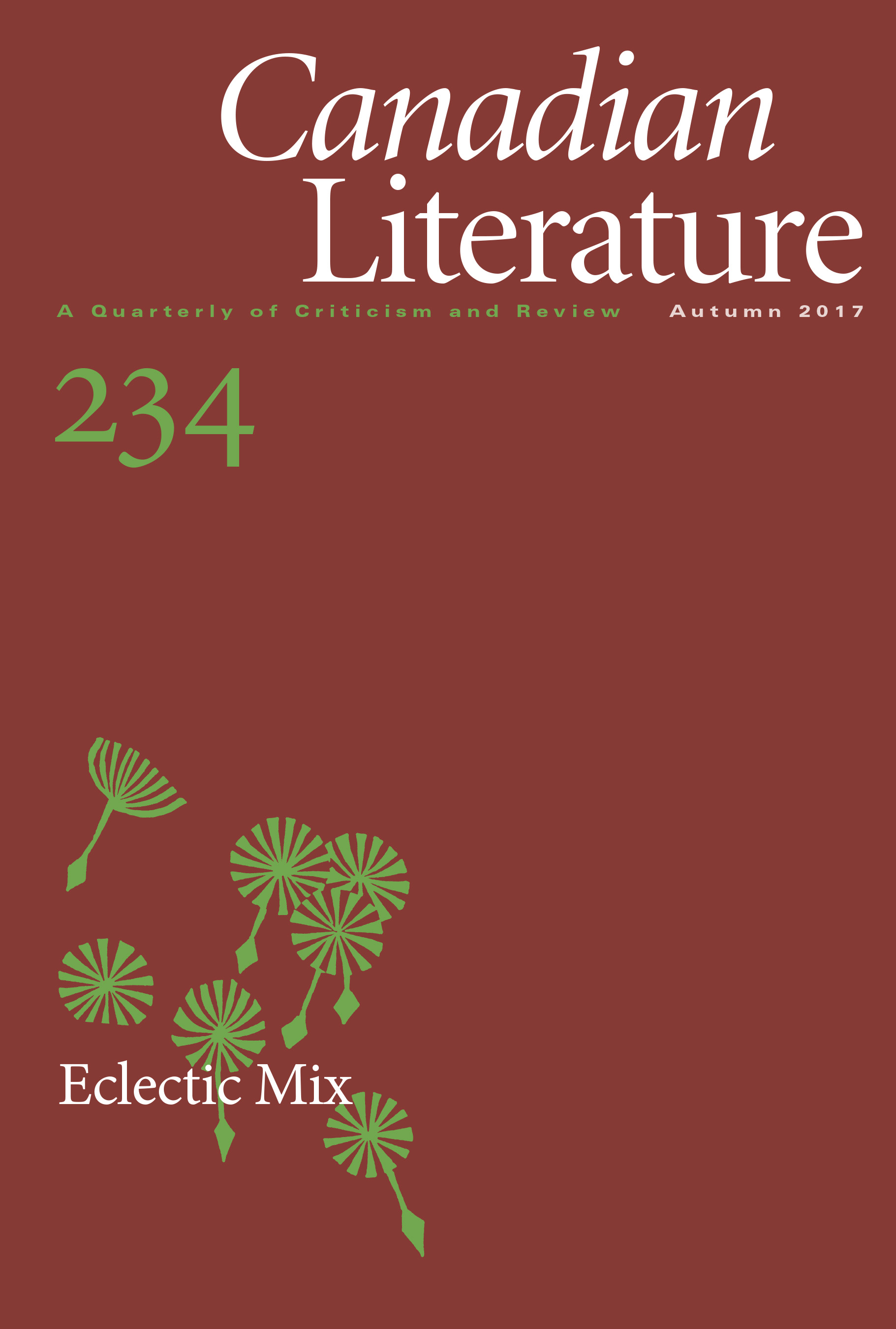Taking Cereals Seriously in Martha Ostenso’s Wild Geese
DOI:
https://doi.org/10.14288/cl.v0i234.189284Abstract
This articles proposes a fresh reading of the classic Canadian novel, Wild Geese, by Martha Ostenso. By way of Anna Tsing's discussion of the cross-species influence of crops on the development of Western agricultural societies, I reconceive of the novel's surly antagonist Caleb as beholden to the fruits of his labour. I thereby develop a reading of Ostenso's frontier narrative that takes seriously the role of other-than-human actors in the novel, which counters scholarship that ascribes solely symbolic status to the novel's plantlife, while also revealing the novel's instrinsic anxiety regarding the limitations of settler belonging.
Key words: frontier novel; nonhuman agency; cereal agriculture; Manitoba; Canadian settler colonialism


